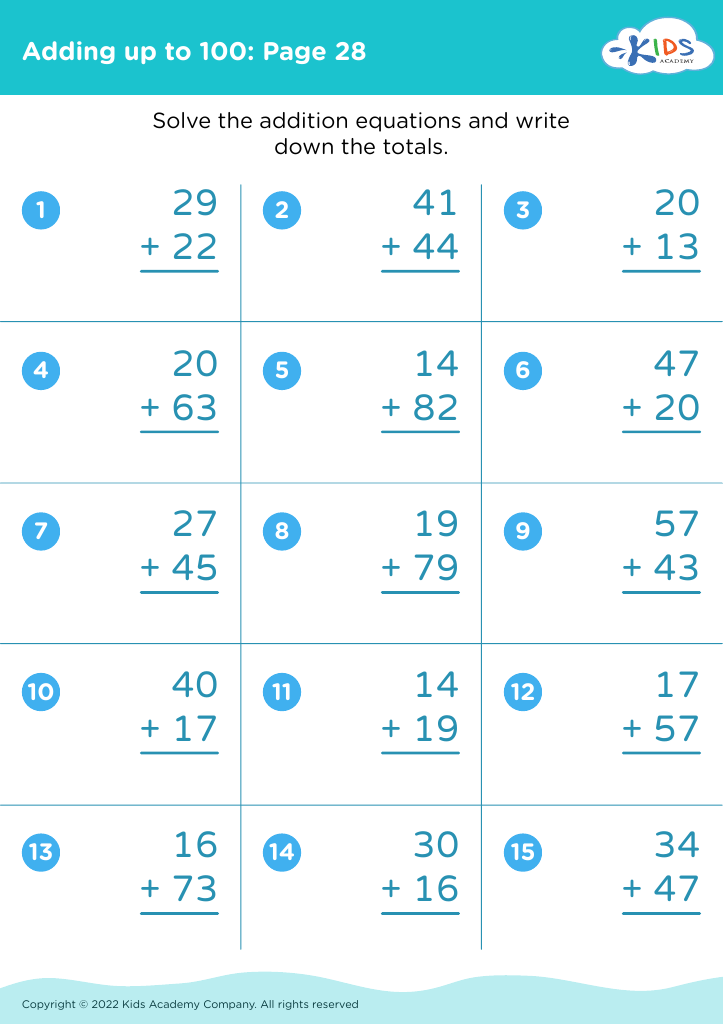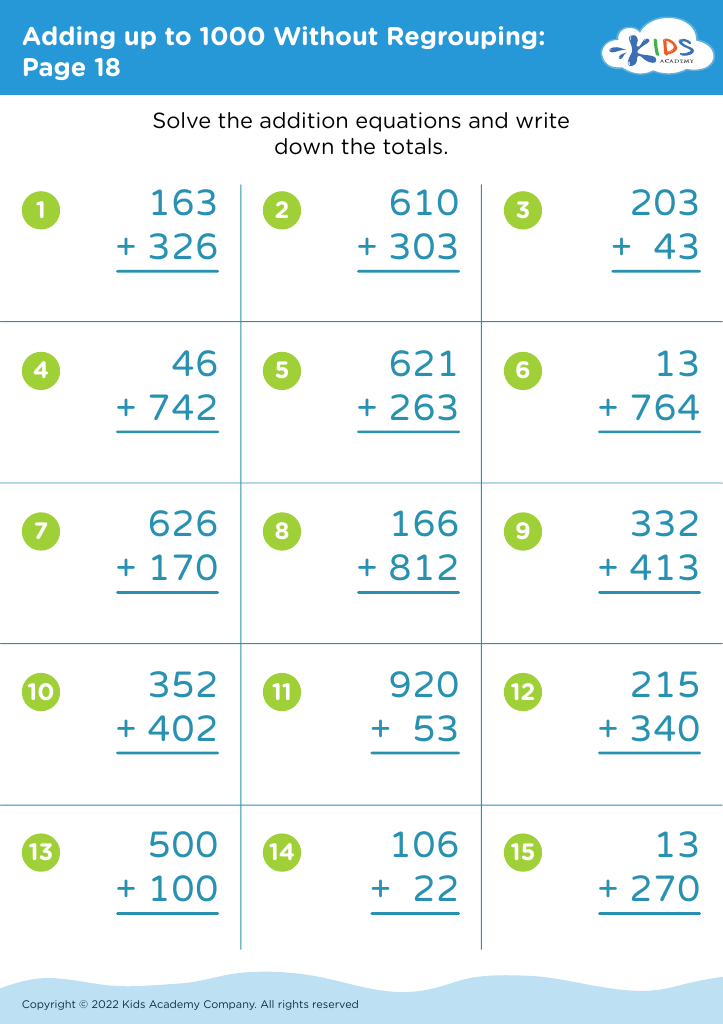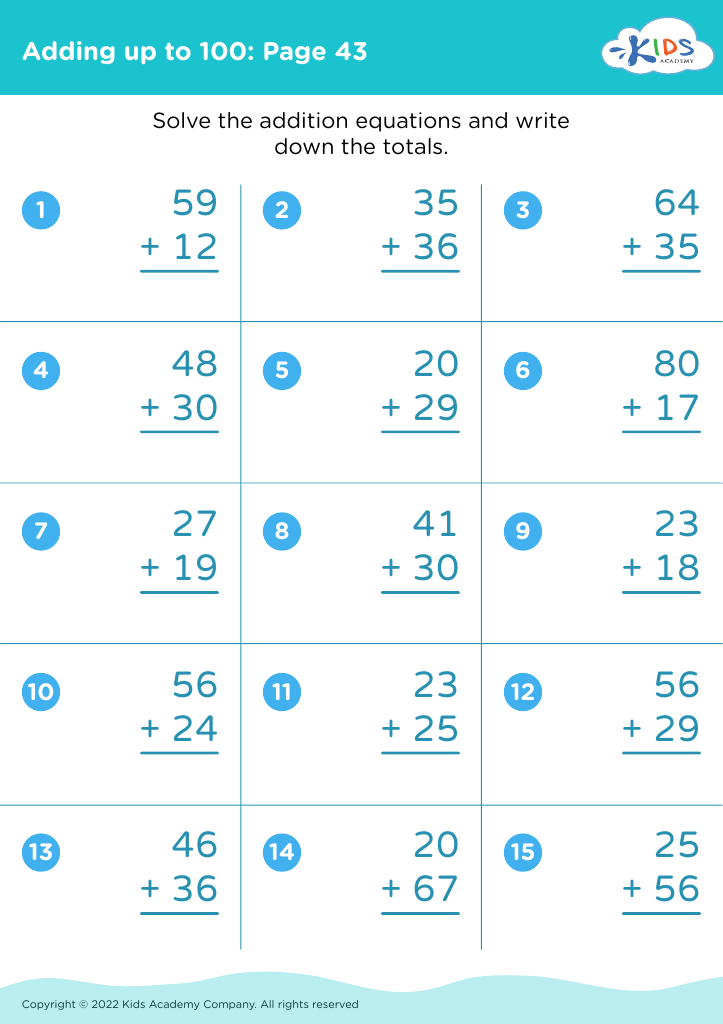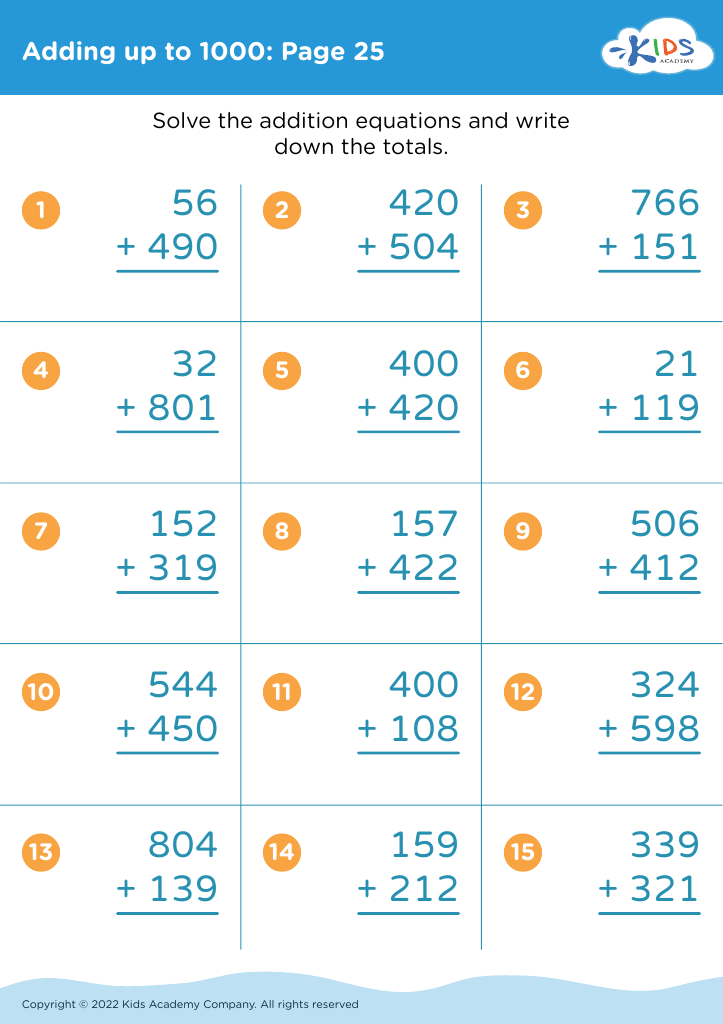Improving mathematical skills Addition & Subtraction Worksheets for Ages 4-8
4 filtered results
-
From - To
Enhance your child's mathematical abilities with our engaging Addition and Subtraction worksheets, specifically designed for ages 4-8. These resources provide a fun and interactive way for young learners to practice essential math skills, fostering a solid foundation in numbers. Our worksheets incorporate colorful visuals and age-appropriate exercises that captivate attention and spark curiosity. Parents and educators can easily access and print these worksheets for at-home or classroom use, ensuring children stay motivated and enjoy learning. By honing their addition and subtraction skills, kids build confidence and readiness for future mathematical challenges. Explore our collection and watch your child's math skills flourish!
Improving mathematical skills, particularly addition and subtraction, for children aged 4-8 is crucial for several reasons. First, these foundational skills form the building blocks for all future math learning. Mastery of addition and subtraction enhances problem-solving abilities and boosts confidence in more complex operations encountered later in mathematics, such as multiplication, division, and fractions.
Secondly, ages 4-8 are pivotal years for cognitive development. During this period, children are highly receptive to learning and concept retention. By fostering strong mathematical skills early on, parents and teachers can instill a positive attitude toward math, helping to reduce potential math anxiety as children progress through their schooling.
Additionally, math skills are essential in daily life. Understanding basic operations facilitates budgeting, cooking, and even playing games, setting the stage for practical problem-solving skills later in life. Engaging with addition and subtraction through fun, interactive methods enhances children's enjoyment and retention of math concepts.
Furthermore, a strong emphasis on math education can level the playing field, ensuring that all children, regardless of background, have the opportunity to excel in STEM fields that are increasingly important in today’s world. In summary, strengthening these basic skills lays the groundwork for academic success and practical decision-making for future generations.























